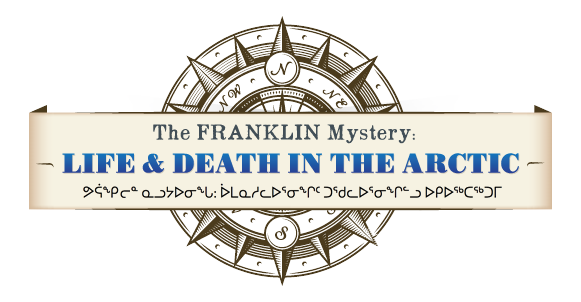Return of the Arctic Expedition (1854)
The Cork Examiner of Friday gives the following interesting account of the arrival of one of the ships composing the Arctic squadron at Queenstown, on Thursday :-
“At 10 o’clock yesterday the Phoenix, screw, one of the last expedition fitted out by the British Government for the North Sea, dropped anchor in our waters having on board Captain M’Clure, the hero of arctic navigation, and several of the crew of his vessel. It will be remembered that in the May of 1850 an expedition was sent for the double purpose of ascertaining the fate of Sir John Franklin and of continuing the exploration of the long sought north-west passage. This expedition consisted of two vessels, the Investigator, commanded by Captain M’Clure, and the Enterprise under the command of Captain Collinson, the first of which succeeded in proving the existence of a sea passage along the northern coast of America. Up to the year 1852 no account had arrived of the fate of those vessels, and accordingly an expedition was fitted out under the command of Sir Edward Belcher, consisting of his own ship, the Assistance, the Resolute, Captain Kellett, the Intrepid, Captain M’Clintock, and the Pioneer, Captain Osborne, to go to their assistance. Thus, there were then altogether six ships engaged in prosecuting the investigation in which alone Captain M’Clure has been successful. In the May of this year the Phoenix, screw, and the North Star and Talbot, storeships, were sent out to the relief of those vessels, and on their arrival they found the whole of the two former expeditions, with one exception, the Enterprise, completely blocked up in the Ice in the district embracing Lancaster Sound, Beechey Island, and Wellington Straits. In Melville Bay the ice was found to be worse than it had been for 47 years before, and everything gave promise of a winter unprecedentedly rigorous, while there was no prospect whatever of getting the ships free this summer. Under these circumstances, Sir Edward Belcher, on his own responsibility, ordered the abandonment of the entire five vessels, which were accordingly left to their fate and the crews distributed among the storeships. It was at Beechey Island the latter landed, and the crews of the abandoned vessels had to proceed a distance of 200 miles overland to reach them. The Phoenix has brought home the greater part of the crew of the Resolute, a few of that of the Assistance, and one officer and one man, besides Captain M’Clure, of the Investigator. The vessels sailed together until they met with adverse winds off the Orkney Islands, when they parted company, the Phoenix steaming for Queenstown, where she could coal, and the others obliged to beat up as well as they could for London. The Phoenix has, unfortunately, brought no decided intelligence of the only ship of the late expedition now missing the Enterprise ; but Captain M’Clure stated that he feels confident of her safety. It is conjectured that the ship had got into one of the numerous creeks or bays on the western coast of North American continent ; that she had been abandoned by the crew, and that the latter were making their way over the land. These conjectures have been formed from a number of concurring circumstances, but the principal one was from the nature of a number of interesting despatches from Captain Collinson, found at different points, bearing date about the year 1852, the second year of his being in the ice. Among other circumstances, it appeared from those that he had followed for a great distance nearly the same course that Captain M’Clure had pursued, and that at one period they were so close to each other as 12 days’ sail, or a space of less than 100 miles. During the whole of her perilous voyage of nearly four years the Investigator has lost but one officer and five men out of a crew of 65. What the practical value of this expedition may be, on which so much treasure has been expended, and the lives of so many brave and gifted men have been sacrificed, we will not now discuss. The result, however, of the late expeditions has been to achieve an unsurpassable feats of naval daring, and to solve a problem which has baffled the efforts of the navigators of four centuries. In these achievements it is no small gratification to our national pride that Irishmen have held a high and distinguished position.



